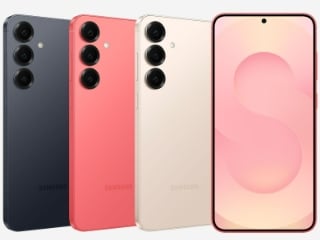- Home
- Mobiles
- Mobiles Reviews
- Motorola Razr 50 Ultra First Impressions: Chasing Perfection
Motorola Razr 50 Ultra First Impressions: Chasing Perfection
Motorola’s Razr 50 Ultra strives for perfection as it aims to fix the shortcomings of its predecessor

Motorola’s Razr 50 Ultra is priced at Rs. 99,999 in India
Motorola's Razr 40 Ultra, indeed, was a game-changer in the world of foldables. Launched in July 2023, the phone surely made an impact and raised the bar for foldable (or flippable) designs, forcing other manufacturers to reconsider how cover displays could be used. In my reviews of both competing foldables (the Oppo Find N3 Flip and the Samsung Galaxy Z Flip 5), it was clear that neither had managed to deliver the seamless cover display experience that Motorola mastered with its Razr 40 Ultra.
It's 2024, and Motorola is back with the next version of its clamshell foldable called the Razr 50 Ultra. It appears very familiar to the previous model, but take a closer look and there are a ton of changes within.
![]()
The Motorola Razr 50 Ultra has a familiar 6.9-inch pOLED main display as before but with a 165Hz screen refresh rate
The new Motorola Razr 50 Ultra sure looks very similar to the previous model it replaces. Very little has changed in the design department, save for the vegan leather-finished rear panels that are now standard on all three colourways, two of which are brand new. Motorola has surely drilled down on the details this year as the Midnight Blue finish offers a dual spliced pattern which results in a different-feeling texture compared to the single spliced finish of the Spring Green and Peach Fuzz options.
The hinge feels so much smoother and refined this year, and Motorola claims that it offers much better free-stop performance compared to the previous model. The hinge is also better designed to deal with dust. When it comes to water, the phone gets an IPX8 certification, which is in line with what Samsung offers with its Galaxy Flip 5. The A cover (protective case) on the hinge is also flatter, making the phone a bit slimmer than the previous model as well.
![]()
The larger 4.0-inch cover display is fully capable of running Google's Gemini AI
A design feature that many may overlook is the cover display, which, unlike the Razr 40 Ultra, now runs from edge to edge with a thin, uniform bezel. The size of the display has gone up from an already large 3.6 inches on the Razr 40 Ultra to an even bigger 4-inch pOLED unit with a higher resolution (1,272 x 1,080 pixels) that is now LTPO and offers a 165Hz refresh rate. The hinge assembly, which intruded into the cover display with the earlier model and resulted in a metal band at the top of the cover display, is now gone and hence has a very seamless and clean appearance. Indeed, Motorola has gone with finer refinements this time that will mainly be visible to an existing customer when both devices are placed side-by-side.
![]()
The Motorola Razr 50 Ultra gets a new hinge, which, apart from being more compact, also feels smooth and refined in action
Another area that feels more polished is the phone's software. Motorola's new Android 14-based Hello UI keeps gradually drifting away from what used to be near-stock Android. However, it's nice to see a revamped cover display UI that even has a pinch-to-zoom-out gesture to view all the new tiles at once (like on the Galaxy Z Flip 5). What is new to the foldable lineup is the use of Google's Gemini AI which is now accessible on the cover display itself. From seeking explanations to brainstorming ideas, even general Q&A and tasks can now be handled without opening the phone's main display, making the already useful cover display even more practical.
![]()
All finishes of the Motorola Razr 50 Ultra this year get a vegan leather rear panel
Powering this smooth new UI and AI experience is Qualcomm's latest Snapdragon 8s Gen 3 SoC. The phone comes with 12GB of RAM and 512GB of storage, which is probably why the software experience feels smoother this year. But more on that in my full review.
There are new cameras as well. Both rear cameras have been upgraded to high-resolution 50-megapixel sensors. The second camera is now a telephoto camera with 2X optical zoom. Selfies are handled by a 32-megapixel front-facing camera embedded into the folding main display.
With a bigger and faster display this year, Motorola has backed up this phone with a bigger 4,000mAh battery (over last year's 3,800mAh unit), combined with the LTPO technology available on both displays and far more power-efficient processor compared to the previous model (should in theory) result in better battery life as well. Charging is handled by a 68W wired charger, which comes in the box. The phone, like last year's model, also supports 15W wireless charging as well.
![]()
Apart from the charger, Motorola also bundles the Moto Buds+ TWS and an environmentally-friendly case in the box
With a high price tag of Rs. 99,999 this year, it all seems justified, given the numerous upgrades available on this year's model. Motorola also offers a sturdy case in the box along with a premium Moto Buds+ TWS (Review) priced at Rs 9,999, which seems like a sweet deal. What remains to be seen is whether Motorola has addressed the heating issues and average still and video camera performance of last year's Razr 40 Ultra into something better this year in its mission to perfect its foldable. And this is something I will conclude in our full review which will be out soon.
Catch the latest from the Consumer Electronics Show on Gadgets 360, at our CES 2026 hub.
Related Stories
- Samsung Galaxy Unpacked 2025
- ChatGPT
- Redmi Note 14 Pro+
- iPhone 16
- Apple Vision Pro
- Oneplus 12
- OnePlus Nord CE 3 Lite 5G
- iPhone 13
- Xiaomi 14 Pro
- Oppo Find N3
- Tecno Spark Go (2023)
- Realme V30
- Best Phones Under 25000
- Samsung Galaxy S24 Series
- Cryptocurrency
- iQoo 12
- Samsung Galaxy S24 Ultra
- Giottus
- Samsung Galaxy Z Flip 5
- Apple 'Scary Fast'
- Housefull 5
- GoPro Hero 12 Black Review
- Invincible Season 2
- JioGlass
- HD Ready TV
- Laptop Under 50000
- Smartwatch Under 10000
- Latest Mobile Phones
- Compare Phones
- OPPO Reno 15 FS
- Red Magic 11 Air
- Honor Magic 8 RSR Porsche Design
- Honor Magic 8 Pro Air
- Infinix Note Edge
- Lava Blaze Duo 3
- Tecno Spark Go 3
- iQOO Z11 Turbo
- Lenovo Yoga Slim 7x (2025)
- Lenovo Yoga Slim 7a
- Lenovo Idea Tab Plus
- Realme Pad 3
- Moto Watch
- Garmin Quatix 8 Pro
- Haier H5E Series
- Acerpure Nitro Z Series 100-inch QLED TV
- Asus ROG Ally
- Nintendo Switch Lite
- Haier 1.6 Ton 5 Star Inverter Split AC (HSU19G-MZAID5BN-INV)
- Haier 1.6 Ton 5 Star Inverter Split AC (HSU19G-MZAIM5BN-INV)

















